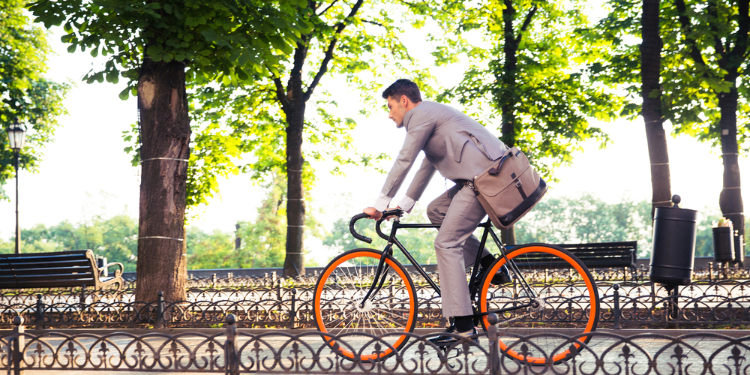
Going abroad is exciting, but going green abroad is even better. How about making it your new year's resolution? Expats are increasingly concerned about the environment. But how to adapt your lifestyle in a foreign country? What are the best ways to consume less and in a responsible way? In other words, how to become an eco-expat?
What are the world's greenest countries?
When we talk about "green countries", we immediately think of Scandinavian countries. The most often, they are role models at the top of environmental indexes and rankings. The Green Future Index, by MIT Technology Review magazine, rates the ecological performance of 76 countries. At the top of the podium for the 2021 edition are Iceland, Denmark and Norway. France comes 4th, with Ireland and Finland close behind. France's ranking comes as a surprise and challenges the MIT's rating system. Another study, released in 2022, ranks Denmark, the United Kingdom and Finland in the top 3. Sweden and Luxembourg follow. This ranking by the American universities of Yale and Colombia has its own indicators. But here again, the findings are pretty controversial. Different organizations use different ranking criteria and draw different conclusions. Nevertheless, it is generally believed that the Scandinavian countries, whose governments are more involved in environmental issues, are doing quite well.
Eco-friendly lifestyles around the world
An eco-friendly lifestyle can be defined as a way of life that is in harmony with the environment. Rather than forcing you to eat fruits and vegetables out of season, for example, an eco-friendly lifestyle allows you to choose to eat fruits and vegetables according to the season. The rationale is the same, no matter what country you live in. In fact, many regions that are overlooked by official rankings (or poorly ranked) have sustainable lifestyles that we perhaps are not even aware of. In sub-Saharan Africa, Latin America or South-East Asia, for instance, there are many regions where people consume local products, where there is little industrial waste, little use of plastic, and minimal digital pollution. On that matter, it should be noted that few indicators measure the impact of digital pollution. Yet it accounts for 3 to 4% of CO2 emissions worldwide. Streaming, mailboxes that are never emptied, PCs that are always on or on standby, and Internet pages that are constantly open, are all actions that generate invisible but quantifiable pollution.
How to be an eco-expat?
Can you adopt an eco-friendly lifestyle by combining green means of transportation, shopping, waste sorting, air conditioning, food, etc.? The following tips will help in any country, be it your home country or your expat country. They will help you reduce expenses and energy bills.
Transportation
The greenest mode of transportation starts with you. If you are lucky enough to live close to your workplace (and if your physical condition allows you to do so), consider combining sports and ecology by walking to work. If not, opt for a scooter, a bicycle, or take public transport. Should you have to drive to work, consider carpooling. If there is no carpooling platform in your host country, word of mouth can help you find neighbors heading in the same direction. Regarding fuel, it's best to use electric vehicles. The ideal would be to have 100% green electricity, but as of today, this is almost impossible.
Food and shopping
Eat local and according to the season. It's best for the planet and for your savings. Avoid imported products, which are more expensive and more polluting. While exploring your expat country, try to learn to cook local products and to eat less meat. When shopping, use reusable bags and ban plastic. Prefer raw or minimally processed products.
Recycling
If your host country has a waste sorting system, do as the locals do. And if it's not the case, try to limit your consumption of non-recyclable products.
At home
Of course, it will all depend on your situation, whether you are alone or with your family, and what kind of adjustments you are willing to make. Where should you buy your furniture and appliances? Should you buy everything second-hand? Air conditioning or not? That is the question! Air conditioning has become a summer essential, with sales exploding with each heat wave. Because of global warming, some countries are facing excessive temperatures. Under these conditions, it is understandable that people are looking for a quick and effective solution to cool down. If you are in this situation, try to optimize the use of air conditioning; do not leave it switched on continuously. Avoid using the air conditioning in the car. For cleaning up the house, consider the use of vinegar. It is quite easy to find in many countries. It is multi-purpose, inexpensive, and environmentally friendly.
The Internet
Clean up your mailbox regularly. Unsubscribe from newsletters you do not follow and don't send too many emails. A study shows that 12 emails sent daily would consume as much as 100km by car. Instead of always using a search engine, save your links in your favorites, or if you want to test your memory, remember the URLs! Don't leave web pages open if you won't use them again, and try to avoid streaming during hours.
Finally, to make the most of your expat life, get your head out of your screens and get some fresh air. Discover new neighborhoods, explore the country or the city, and look for parks not far from home. That's what going green is all about.



















